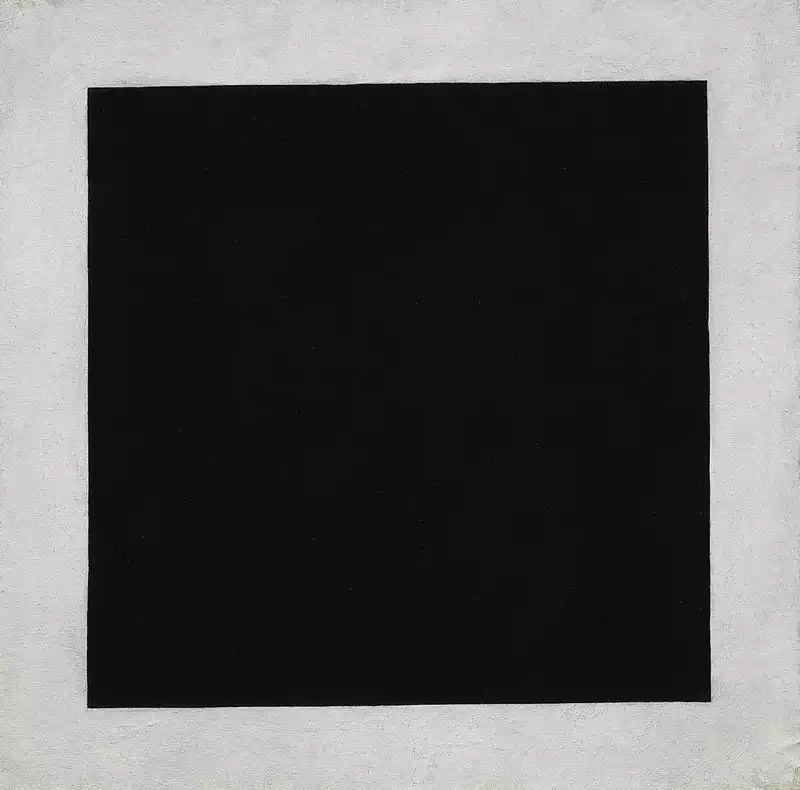Meaning negated: Kazimir Malevich’s Black Square (1915). They were busy negating meaning at Red Square as well.
The modern secular liberal of the West, the “man of the age” (saeculum), the man not rooted in timelessness or the covenantal mind that guarantees its transmission, denies death at the level of his conscious thought. He has renounced all belief in judgment, in heaven, in hell, in the eternal consequentiality of his actions. He mingles the old Epicurean lie that death is meaningless, either ignorant of or willfully ignoring the fate of Epicurus himself - who died in warm bath water from kidney stones, asking for a goblet of unmixed wine and “straightway found chill death in that same draught” - and his Roman epigone Lucretius, - who went mad and committed suicide - with the constant search for distractions and pleasures. Yet he cannot wholly escape the fact that he must die. Even Cicero, in his way, was a forerunner of the anima naturaliter Christiana we find in Virgil: so he ends his meditation on the summum bonum in De finibus: Ad altiora quaedam et magnificentiora nati sumus (“We are born to achieve higher and more honorable things”).
If the credo of the old world was “to philosophize is to learn how to die” (Plato, Phaedo), then the credo of the modern world is roughly: “Ignore death.” This fear, however, is not extinguished under the weight of his attempts at diversion, as he might expect, but festers like mold and emerges transformed in the artifacts of his conscious life. Medicine and biotech seem to promise postponement; AI and digital consciousness seem to offer transcendence; the cultivation of hedonism and self-expression is presumed to offer sufficient distraction; social justice and activism promise pseudo-immortality through channels of impact and reputation. But that is the crucial part: these things all seem but do not mean.
Now, the sum of these things, which one might rightly call a sort of secular religion, effectively offers man the promise of immortality without God. But a thing dutifully ignored and wished away all too often reemerges as the very desire for it, cloaked in fairer raiments. This should be clear enough to us from the school of our own lives. In denying the reality of death, secular liberalism denigrates the sanctity of marriage and family in favor of individual self-expression; it undermines organic cultural transmission by prioritizing rootless cosmopolitanism; it abolishes sacred order for the sake of endless modes of subjective expression. Plainly said, it degenerates into a system incapable of reproducing itself at any level: biologically, spiritually, or civilizationally. It yields an ideology of survival that cannot survive; it produces death.
And as paradoxical as this may seem, it should hardly be surprising. In even starker terms: a system wherein reproduction is viewed as a burden, identity as fluid and optional, tradition as tyrannical, and sacrifice as either undesirable or unnecessary can only result in free-fall entropy.
It is a worldview rooted in the denial of death that achieves death through that very denial. It constructs a utopia that culls the people meant to inhabit it.
To exit the life of this world is to enter the Life of Eternity, and the only exit point is Christ.







